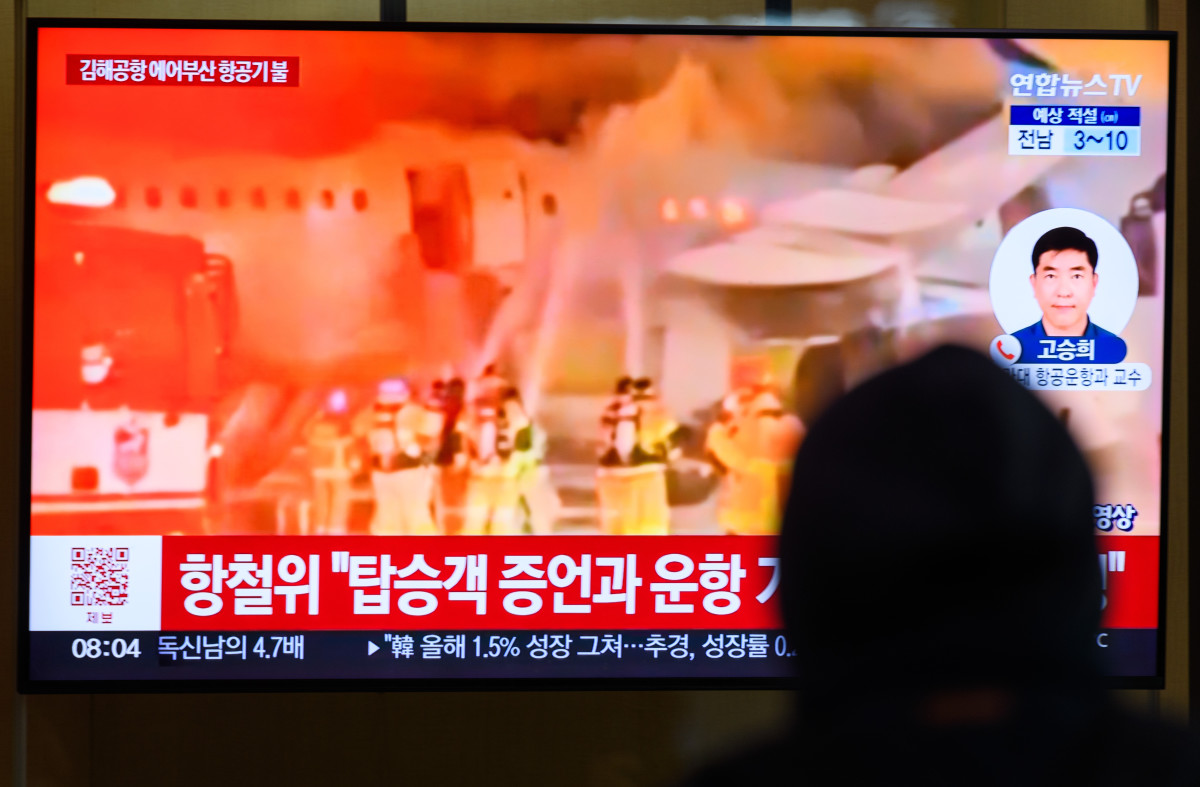
In what has been a very grim few weeks for aviation, a plane preparing to leave from South Korea to Hong Kong caught fire last Tuesday. The fire began outside but spread rapidly into the cabin.
While all 169 passengers and seven crew members aboard were evacuated with only minor injuries sustained by seven, the Airbus 321 (EADSF) plane used by Air Busan was burnt beyond repair.
Images to come out from the fire show half the plane's fuselage blackened and parts starting to cave in as firefighters rushed to extinguish the flames at Gimhae Airport on Jan. 28.
Breaking: 12 things to know about Trump's new tariffs

Shutterstock
Air Busan to check bags, remind travelers to take out the power banks
While an investigation into the incident is ongoing, preliminary analysis shows that a power bank that a passenger had in a bag placed in the overhead compartment may have contributed in starting the fire.
A flight attendant was the first to spot the flames spreading toward the roof from Seat 28L.
An official cause has not yet officially been declared but, as a preventative measure, Air Busan is banning any power banks from being kept inside passenger bags in the overhead compartment.
Related: South Korea's government responds after deadly crash sparks debate over cause
On top of asking that passengers remove any power banks from their bags during boarding, airline representatives will also check for and ask about power banks at the gate in order to remind passengers to remove them from any bag that is not at their feet.
As the device meant to provide extra charge without a plug is more prone to short-circuiting, the goal is to be able to spot any flames or smoke before it has time to spread onto other items.

"If it creates a short circuit it can create a high temperature and burn the internal materials and create a fire which can burn clothing in the baggage," Lo Kok-keung, a retried engineering professor at Hong Kong Polytechnic University, told the South China Morning Post.
'This can cause an internal short circuit, resulting in overheating'
Lithium batteries are also found inside devices such laptops, tablets, cell phones and electronic cigarettes. While the specific policy will vary from airline to airline and country to country, almost all will ban such items from being transported in checked baggage and have specific safety requirements for transporting them as carry-ons.
Given that the items listed above are commonplace devices carried by almost every passenger, they are by far the most common cause of in-flight fires.
After a spike in incidents in 2023, U.S.-based airlines such as Delta (DAL) and United (UAL) started reminding passengers who drop their phone into the slot between the plane seats not to try to reach for it themselves but to call a crew member for help extracting it.
Other instructions are to avoid packing carry-on baggage in a way that will put pressure on any device with a battery.
More on travel:
- American Airlines crash with U.S. Army copter leaves no survivors
- Trump starts presidency with three executive orders affecting travel
- Another country just issued a new visa requirement for visitors
"Take steps to prevent crushing, puncturing, or putting a high degree of pressure on the battery, as this can cause an internal short circuit, resulting in overheating," Delta writes on its website.
Related: Veteran fund manager issues dire S&P 500 warning for 2025







